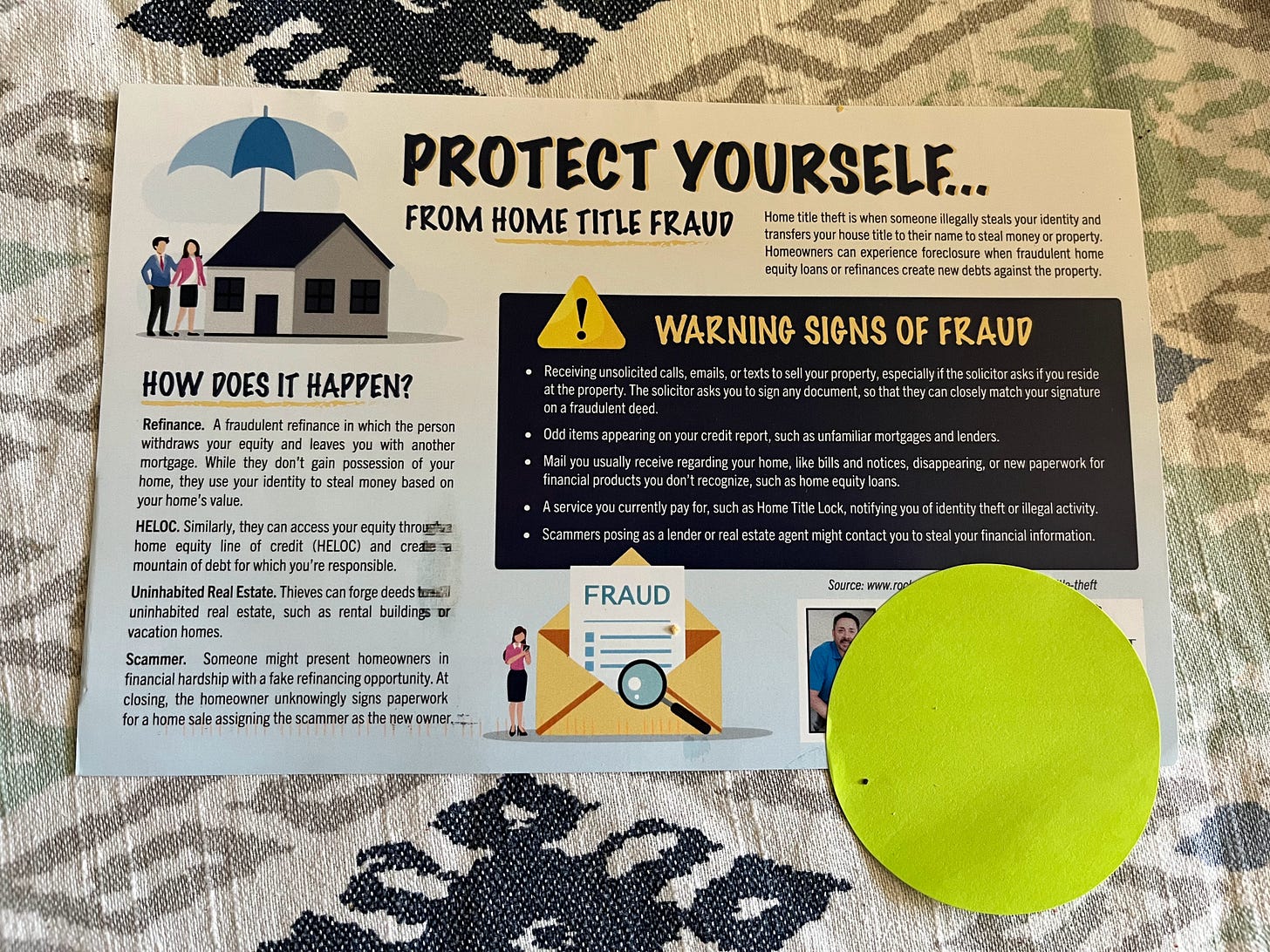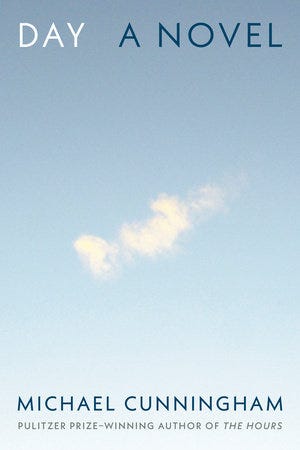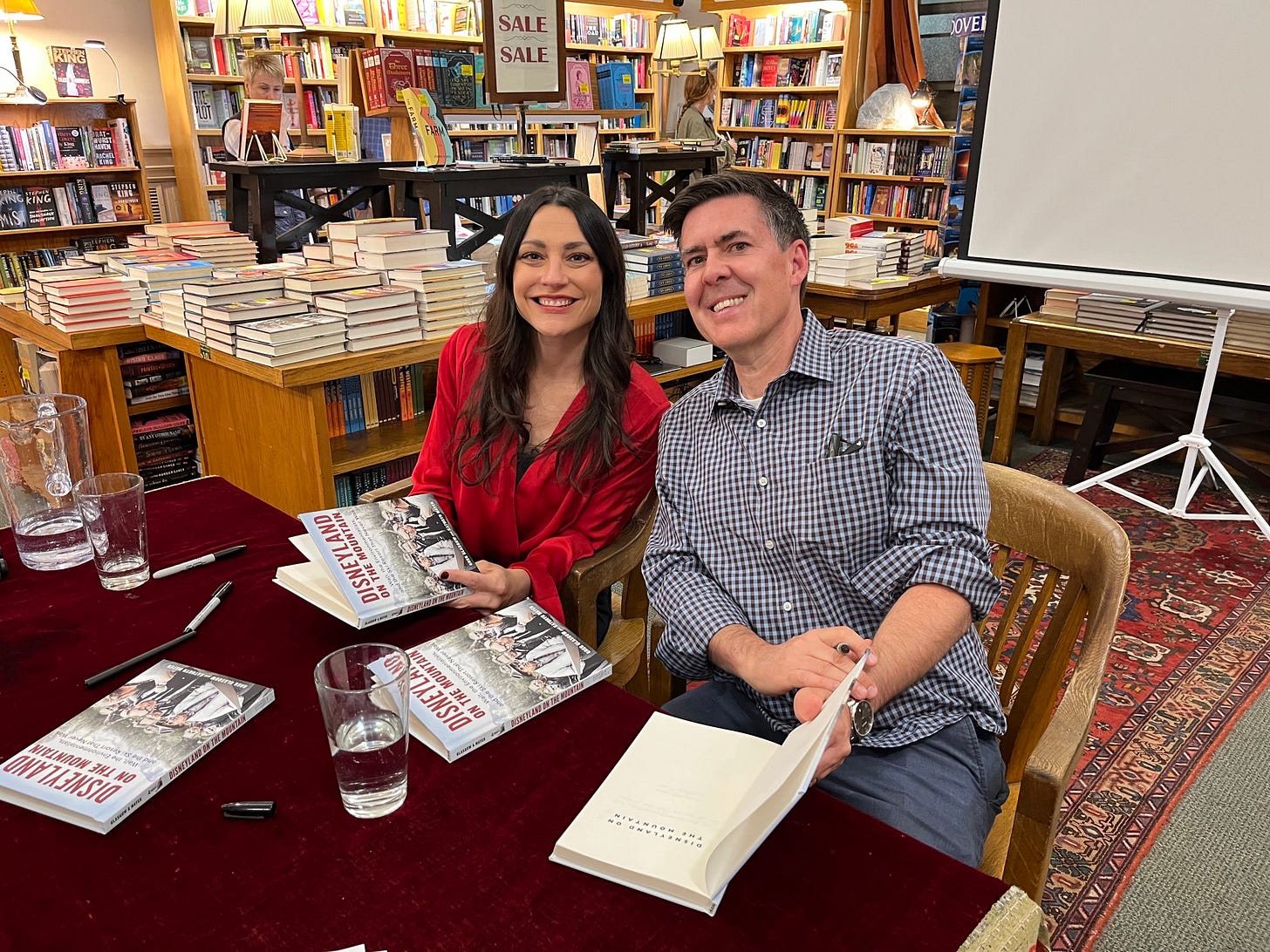A Special Kind of Crazy: Veterans and the Writing Life
Learning from veterans, doomsday preparation tips, new novels by Tan Twan Eng and Michael Cunningham, and contributing to Lucia Berlin's biography.
Last summer the writers in my workshop at the Mile High MFA shared a connection: in the group were four veterans, a military spouse, the daughter of a military officer, and one man who’d worked as a military chaplain. The class wasn’t specifically for veterans—these were just the people who happened to enroll in the program. It was remarkable given that only about seven percent of Americans have served in the military.
I always enjoy teaching veterans because I learn so much from them. One veteran student of mine a few years back objected to the ending of Richard Bausch’s brilliant short story “The Man Who Knew Belle Starr,” because the protagonist gave up too fast when the crazed young woman he’d picked up as a hitch hiker began chasing him with a gun. “It says he ‘sprained his ankle’? When it’s a life or death situation?” he said. “I’ve seen people keep running with half their leg blown off.” Which was an evocative and enlightening statement.
One of my students from last summer’s class, Jeff Curry1, has continued to work with me for the fall semester. Last month he wrote a fantastic essay about the grueling training he underwent to become an Army Airborne Ranger, detailing the first time he parachuted out of a plane. He described the grinning instructor who led the group as “a special kind of crazy” who relished all aspects of the preparation and the jump.
Jeff asked for some advice on how to get “trained and shaped as a writer.” I suggested the usual—reading attentively, writing as much as possible, forming feedback groups with his peers. I told him his writing is polished enough that he should start to submit some of his essays and stories, to learn about the literary ecosystem, and to begin to develop the rejection callouses that all us grizzled writers are covered with.
Jeff wasn’t sure if it was time to try to publish his pieces yet. As his essay about the process he endured to become an Army Ranger attests, he has a background in fields in which people train for a certain length of time, pass certification exams, and then are deemed qualified. “I don’t feel like a writer yet,” he said.
My answer to that is that none of us do. I think it takes a "special kind of crazy" to be a writer, and the questions he was asking were helping him to discern the exact nature of that craziness. Like, you mean, there's no certification? There's no moment that distinguishes between when you're a beginner and when you are an actual writer? You mostly have to work alone, and have no idea if what you're doing is right, and you could pour years into something and it might not work out? And then you have to submit your work and it could get rejected 90 times2, and then be picked up on the 91st try, but you don't know the number of tries it will take, or if it's just not ready to published and the growing pile of rejections is the indication of that?
It's all crazy! It's one of the craziest jobs I know of. But I do know that for most of us it continues to challenge, and it continues to satisfy. Or at least, we find that we just can’t quit. I also enjoy the people writing brings into my life—when you go to literary events, many times the only thing the people there have in common is that they've chosen to express themselves and make art in their free time. That's such a countercultural choice that I find it invigorating to meet others who are on this path.
You are never ready, once and for all, as a writer. You are never a trained, certified, qualified writer. Each project leaves you floundering, each one makes you a beginner again. But sometimes your writing is ready—sometimes you’ve worked over your story, poem, essay, or book long enough that it is a qualified, certified piece of thought, heart, and language, and it’s time to strap on its parachute, smile at it, and send it out the door of the airplane, without knowing where or when or how it will land.
The Assorted Whimsy Portion of The Tumbleweed
I get a lot of postcards from realtors in the mail. These marketing efforts usually include a restaurant coupon or a bit of cheery information, like the local college’s football schedule, or a list of the best bagel shops in town. They send them in the hope you’ll have this realtor’s info handy when the urge to move strikes.
Then I noticed one local realtor who decided to go in a different direction. This guy is in tune with the apocalyptic now. He doesn’t send out lists of local happy hours. Instead, he sends out disaster preparedness cards. I just got his Winter Driving Hazards tip sheet, but my favorites from his repertoire are these two. First, the Evacuation Checklist:
After the fire, flood, or tornado, will there be anything left of your house for this guy to sell? If so, be careful, because someone just might try to defraud you on that complicated real estate transaction:
It’s all frightening enough to make me want to hunker down and never, ever move.
The Book Recommendation Portion of The Tumbleweed
I reviewed Tan Twan Eng’s new The House of Doors, which is his third novel and the third to land on the Booker Prize longlist. The story is inspired by the true history of novelist William Sommerset Maugham’s travels to Malaysia and the secrets he uncovered there that inspired his fiction. For the Minneapolis Star Tribune, I wrote:
The House of Doors is propelled by fascinating characters, the tension over their gradual revelations and Eng's exquisite writing, with transporting descriptions of "coconut fronds casting fish-skeleton shadows on the soft, fine sand" and "smoke unthread[ing] from the joss sticks, plaiting and dividing as it climbed into the bright sunlight."
Michael Cunningham just published Day, his first novel in nine years, and also I got to write about it for the Minneapolis Star Tribune. The novel joins a fracturing family on three April fifths during years that span the Covid pandemic—one year just before, one during its peak, and one after. I wrote:
“Cunningham — who has built a career on fiction that explores mortality, the passage of time and how the pressures of both alter intimate relationships — is the perfect writer to examine the pandemic…Cunningham remains a writer of extreme poise, with a penetrating intellect and a winsome sense of humor. His sentences make you want to bask, to take a nap in their sun. And Day, like all his novels, invites readers to consider their own loves and losses.”
You can read the rest of the review here, or just go ahead and get the book!
The Happenings & Links Portion of The Tumbleweed
Nina Ellis is a writer from London who I met a few years ago when she was writing her PhD thesis on Lucia Berlin. Now she’s signed a book deal with Farrar, Straus & Giroux to write a biography of Lucia. There couldn’t be a worthier subject! Nina has been traveling the world to visit all the places Lucia lived as she writes the book, and last month she came to Boulder to talk to me, Erika Krouse, and Ashley Shires, three of Lucia’s students. We met at Rincon Argentina, ate empanadas, and could have talked all day about what Lucia meant to us. Read about Nina’s travels in her Substack “Looking for Lucia.” I will be sure to update everyone when Nina’s biography of Lucia hits bookstores!
Speaking of Lucia’s former students, my friend Greg Glasgow, who I met in Lucia’s fiction workshop, has just published his first book, which he co-wrote with his wife Kathryn Mayer: Disneyland on the Mountain: Walt, the Environmentalists, and the Ski Resort That Never Was. I got to see Greg and Kathryn’s book launch at the Boulder Book Store.
The book has been getting some wonderful reviews in the Orange County Register, the Theme Park Insider, and more. Greg and Kathryn will be talking about the book on Saturday, November 18 at 3:30 p.m. at the Sam Gary Branch, Denver Public Library (2961 Roslyn St.)
As always, The Tumbleweed welcomes your questions and comments about writing, reading, taco eating, the Denver Nuggets, rabbit wrangling, Deion Sanders, and baby seals.
He told me it was okay to use his name! I would never drag anyone into the Tumbleweed without their consent!
Yes, I’ve actually had stories and queries rejected 90 times that were then published. And 71 times and 84 times and 52 times…









Jenny- Thanks for sharing this. Personally I think we should think about vets every day. Hopefully we'll learn something from it. Jeff's admittance on not feeling ready as a writer and your answer to it---is perfect. The thing that I found about readiness is that, as soon as you're ready about something, you're immediately not-ready for the next thing. Life is a series of undulating mountains and valleys, doors closed to the past and opened to what's ahead. I don't think these milestones can ever exist without the two sides of the spectrum. And so you're right in that readiness is 'never really ready.' This writing is a great reflection.